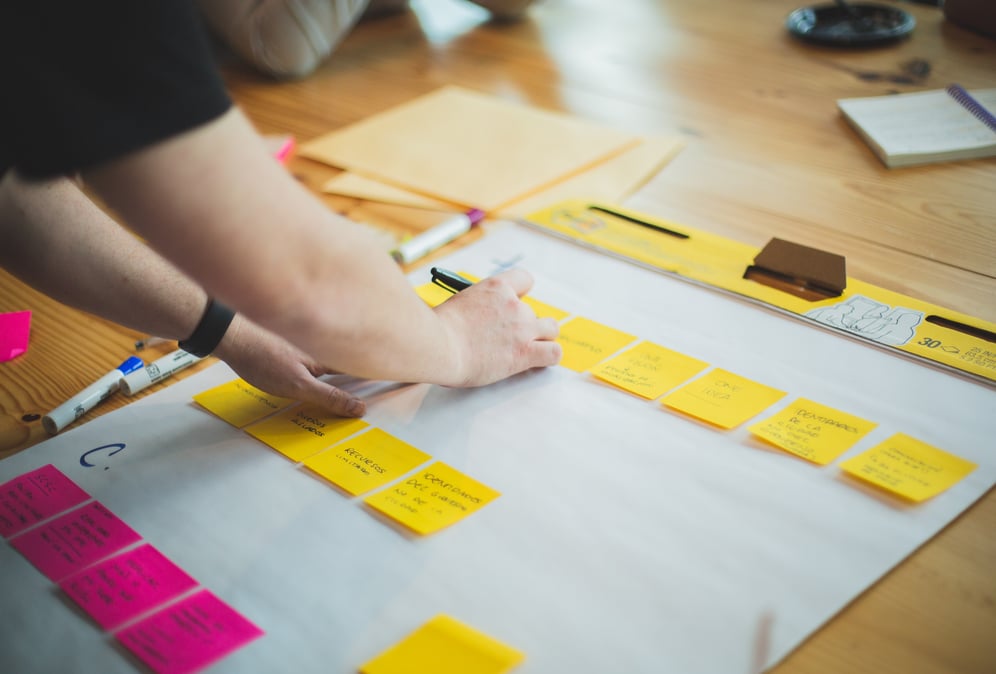Your language training is complete. Now the real work begins: communicating in the new language! But how do you maintain your language level when you no longer have lessons with your language coach? Our German language trainer Antje gives you 5 tips to learn the language after your training, for A-level students. Antje's speciality is German, but of course many of these tips also apply to other languages.
1. Use text building blocks.
Just like when you write emails or fill in forms, you use text building blocks when you speak: expressions and phrases that you use as fixed puzzle pieces. Pay close attention to the answers, because even in these you will find another word or phrase that you can recycle in the conversation. These key phrases are a good start: "Wie geht es Ihnen? - Danke gut, und Ihnen?" or: "Vielen Dank! - Gern geschehen!"
2. Use post-its.
You can train vocabulary by putting up post-its, literally or figuratively, at home or in your work environment. Rest assured, by the time the post-its tumble down, you will have memorised the words.

3. Talk in your new language, even if no one is listening.
Even though you may not (yet) have a conversation partner with whom you can talk German, take a walk and tell yourself what you see, what you think about, what comes to mind. Even more fun, of course, is talking German with your German shepherd. You can also record your conversations with your smartphone and re-listen later.
4. Integrate the new language into your daily life.
Switch on your websites, mobile phone, car navigation system, homebanking ... that you routinely use in German instead of your mother tongue - then you will automatically think about the next step in that language too. It doesn't take much extra time and you integrate the newly-acquired knowledge into your daily life.
5. Engage others.
Ask a colleague or business partner to speak German in certain situations from now on. But know that it is not easy for the other person (especially a client) to correct you. So make it clear that you appreciate feedback, to improve communication, and say "Dankeschön!" once too much rather than too little.

Do you have a higher language level than an ECA level A?
Then be sure to read Antje's blog 5 tips for maintening language at B level.
No idea at all which level you have or what that A or B level means exactly?
Then we can also help you. Read more here.
BLCC continues to support you even after your language training.
Do you need a few individual sessions with a language trainer after your BLCC language course? Would you like to have the opportunity after your training to improve your language skills for crucial moments such as an important presentation, a telephone call, a negotiation, etc.?
With Squidll, you have 24/7 access to on-demand language support from our BLCC language coaches.
So you can continue to develop your language skills even after your BLCC training.

